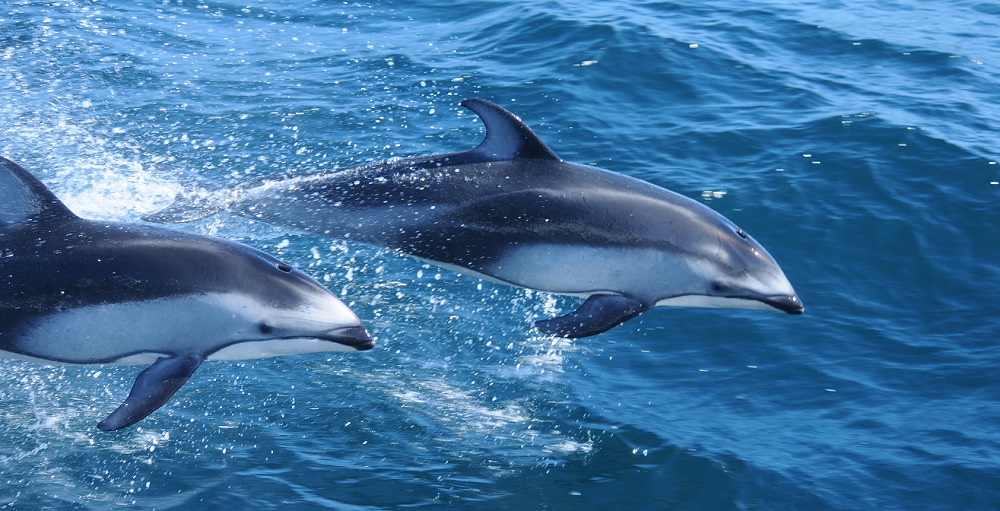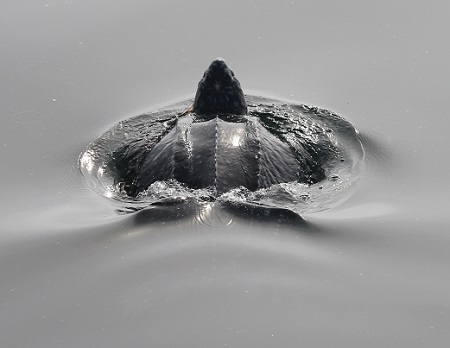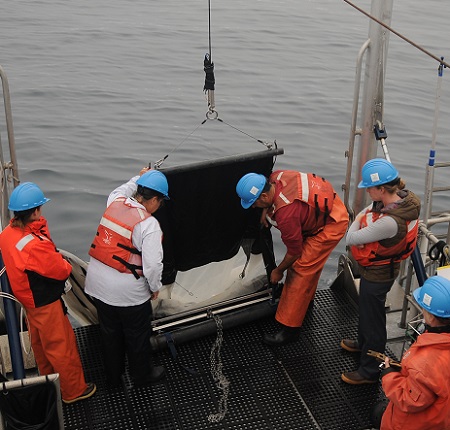Applied California Current Ecosystem Studies (ACCESS)

The Applied California Current Ecosystem Studies (ACCESS) is a partnership that supports marine wildlife conservation and healthy marine ecosystems in northern and central California, by conducting ocean research to inform resource managers, policy makers and conservation partners.
ACCESS has five primary research objectives:
- To improve conservation of birds, marine mammals, and other top predators and their food webs;
- To provide information that will assist sanctuary management, assess the effectiveness of ocean zoning, and guide human uses to provide protection of the marine ecosystem;
- To document the effects of environmental change on the marine ecosystem that will improve our understanding of climate change;
- Contribute to ecosystem-based management approaches and improve our understanding forage fish populations; and
- Study water quality, nutrients and the effects of freshwater outflow from major estuaries along the central and north California coast.

Since 2004, ACCESS surveys focuses on the oceanic habitats in Federal and State waters of northern and central California, encompassing portions of three National Marine Sanctuaries waters (Cordell Bank, Greater Farallones and Monterey Bay). Three to four cruises are conducted annually between April and October, in order to collect data on biological and physical influences and changes during the beginning, middle and post-upwelling seasons .
ACCESS performs both oceanographic and biological sampling, including, bird, mammal, turtle abundance and distribution, ship traffic, acoustic and net sampling of zooplankton, water column nutrients and pH for ocean acidification monitoring. ACCESS members jointly conduct integrated, collaborative, and multi-disciplinary research to monitor distribution, abundance and demography of marine wildlife in the context of underlying physical oceanographic processes and inform managers, policy-makers and conservation partners about wildlife responses to changes in ocean conditions, and human threats to mobilize public support for marine conservation. Watch a video to see see how we operate a tucker trawl net.

Our primary partners include Point Blue Conservation Science, Cordell Bank National Marine Sanctuary, and Greater Farallones National Marine Sanctuary. Other partners include: Greater Farallones Association, San Francisco Bay National Wildlife Refuge Complex, University of California Davis – Bodega Marine Lab, Hawai’i Pacific University, Pomona College, Sonoma State University, and San Francisco State University – Romberg Tiburon Lab, and the California Department of Public Health.
Photos, videos, annual summaries, and annual reports can be found on the ACCESS website. During research cruises ACCESS posts images and videos of daily events and findings. Follow ACCESS on Facebook

